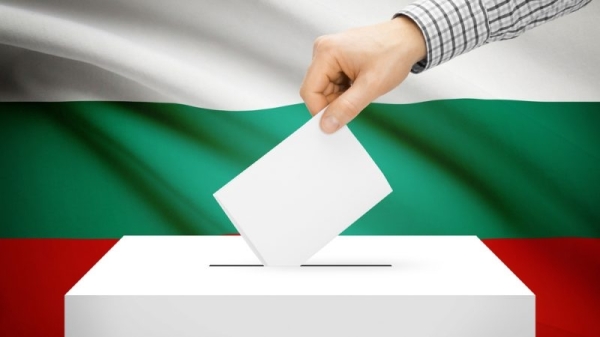Bulgaria will vote with little hope after two years of political crisis

Bulgarians will vote on 2 April for the fifth general elections in two years, but the odds of forming a stable government after that are not high.
There is no light at the end of the dark tunnel of the political crisis in the EU’s poorest country, which also happens to be NATO’s most vulnerable link to Russian influence.
The risk is that pro-Russian President Rumen Radev, opposed to sending ammunition to Ukraine, will continue to rule from Sofia.
Without a stable parliamentary majority, Bulgaria will not be able to accept the justice reform promised to Brussels, which will block payments for €4.5 billion under the Recovery Plan.
At the same time, authorities in Sofia also show serious hesitation in absorbing the EU funds for the Green transition, flirting with the coal lobby and spreading anti-European sentiments.
For Bulgaria’s EU partners, Radev’s long rule is very bad news because he cannot negotiate and make long-term political bets since he does not have his parliamentary majority. However, his playing with the pro-Russian sentiments of the Bulgarians may cause problems in the European Council – meaning that Bulgaria will continue to be the black hole of EU politics and can only hinder the achievement of unity on key issues.
The irony is that the three largest political formations in the country stick Euro-Atlantic labels on each other. The We Continue the Change-Democratic Bulgaria coalition has the greatest chance of winning the elections, gathering between 23-27% according to various surveys.
The elections are expected to be highly contested because the GERB-SDS coalition of former Prime Minister Boyko Borissov is only 1% behind. The two political formations could easily form a stable government, but Borissov is a divisive figure.
The former three-time prime minister is widely accused of corruption by his opponents. While Borissov claims photos of gold bars and €500 banknotes from his residence that were anonymously distributed to the media three years ago, were staged, the prosecutor’s office continues its investigations. However, Bulgarians have no confidence in the work of Chief Prosecutor Ivan Geshev, who his critics accuse of ties to Borisov.
We continue the change-Democratic Bulgaria rejects the possibility of signing a coalition agreement with GERB, while Borissov is the party’s leader. The proposal is for a minority government with the support of GERB but without a political contract.
Borissov’s people rejected this offer, saying that a government cannot be supported without a political contract. In this context, the active intervention of Washington is also taking place, as a month and a half before the elections, the US imposed sanctions for corruption under the Magnitsky Act on Borissov’s long-time finance minister – Vladislav Goranov. The financier was accused of harming public interests in favour of gambling boss Vassil Bozhkov, hiding in Dubai.
Some political analysts argue that the next US sanctions could affect Borissov himself, after he secured the continuation of the Russian TurkStream gas project to Hungary, and is now proving to be an obstacle to the formation of a stable Euro-Atlantic government on NATO’s eastern flank.
“They are playing with fire because the next portion of Magnitsky will go higher (from Vladislav Goranov), and we all know who is higher,” commented political analyst Petko Georgiev.
The third political force in Bulgaria is DPS, with a 13-14% share. The party’s core includes the Turkish minority in Bulgaria, and the party itself maintains a Euro-Atlantic label with noticeably pro-Russian voters. Such a paradox is possible because the DPS electorate has not changed since the end of the totalitarian regime in Bulgaria in 1989, the Turkish minority accepts the party as the main guarantor of their rights and freedoms.
Coming in fourth was the pro-Russian populist party Vazrazhdane, which collected between 11.5-13.5%, according to various polls.
The party is headed by the energetic populist Kostadin Kostadinov, who is perceived as a major threat to the Euro-Atlantic orientation of the country and has a serious influence on social media, mainly on Facebook.
Kostadinov repeats the Russian narrative, including that the war in Ukraine was started by the US. At the same time with the pre-election campaign, Vazrazhdane is collecting signatures to trigger a referendum against Bulgaria’s entry into the Eurozone, claiming that over 430,000 signatures have been collected (nearly 8% of the Bulgarian population).
The fifth party that will find a place is the pro-Russian Bulgarian Socialist Party, with 7-8% support.
The leader of the socialists, Kornelia Ninova, turned the party into a classic conservative nationalist organisation, with internal scandals leading to an outflow of votes to Vazrazhdane, which is already accepted as the better representative of the pro-Russian vote.
The biggest loser below the 4% limit for entering the Bulgarian parliament is the former most supported party, “There is such a people” of the showman Slavi Trifonov, which only a year and a half ago had a chance to form a government.
However, Trifonov squandered his chance with his inconsistent behaviour.
(Krassen Nikolov | EURACTIV.bg)



